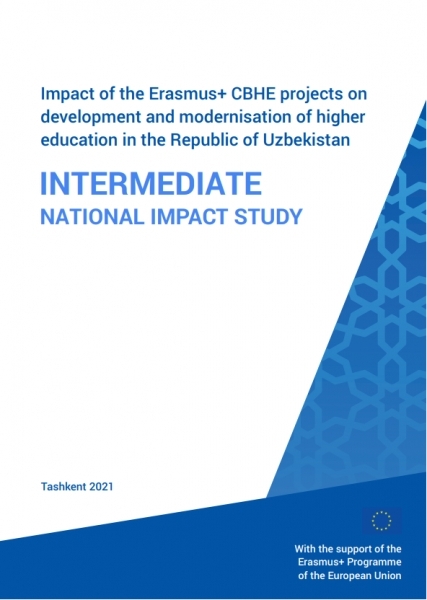“Erasmus+ programme impact 2015-2020 in Uzbekistan
Erasmus+ programme significantly contributed to drastic in Higher Education of Uzbekistan
This is one of the conclusions of the National Impact Study (NIS) on impact of Erasmus+ projects (2015-2020) on higher education system of the country. Majority of experts and respondents participated in the study agreed that without the impact of the Tempus and Erasmus+ projects a rapid modernization of higher education in Uzbekistan in 2017-2020 would hardly had been achieved. This is in particular true concerning the new and often innovative areas of education, strengthening of internationalization process, as well wide introduction of the credit-modular system.
To discuss key findings of the study and look for the future cooperation opportunities, the webinar was held with the support of the Ministry of Higher and Secondary Specialized Education and the Delegation of the European Union in Uzbekistan.
In a view of forthcoming new Erasmus+ Calls for Proposals the results of the NIS and recommendations developed will be presented and discussed on the 1st Day of the webinar. The representatives of respective ministries and state committees will get acquainted with the cooperation opportunities and direct involvement in Erasmus+ projects jointly with the higher education institutions (HEIs).
The most relevant topics of Capacity Building in Higher Education (CBHE) Erasmus+ projects, which will be presented by HEREs in accordance to on-going reforms in politics and economy, higher education, science and innovations, agriculture and healthcare system, will be discussed on the 2nd day. The topics have been developed and presented by the National Team of Higher Education Reform Experts in the analytical part of the NIS with the description of the respective reforms for 2017-2020.
